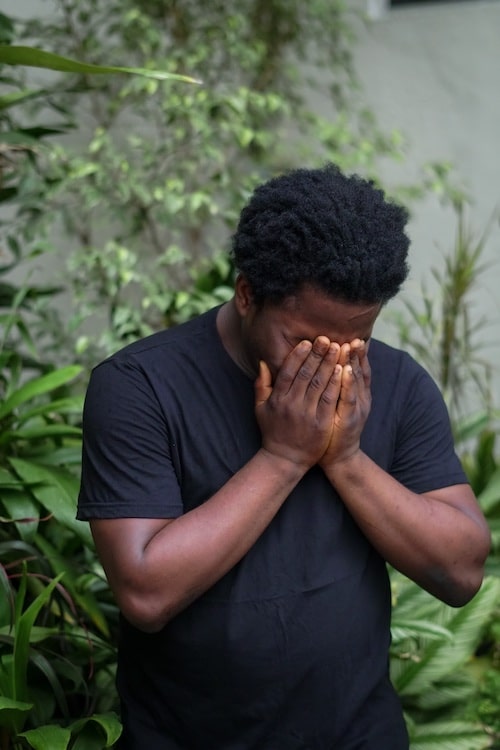We enjoyed an interesting and thought provoking in-person seminar with our host, Briony Martin. The…

Hellebores; growing into your shape rather than being moulded
How to be a ‘Bad’ Therapist: Deconstructing the ‘rules’ of our profession, reimagining how to work with integrity and creativity (March 2023)
Allison Priestman, provided us with a very inclusive, interactive and live seminar to the online group. The subject of being a “bad therapist” evoked many feelings and interpretations from the group and we felt that it somehow gave us the chance to engage in a more open and truthful dialogue concerning the perceived “rules of counselling/psychotherapy” learnt through our training and studying.
We enjoyed several break-out group sessions, where we shared thoughts and experiences on our own modality trainings. We questioned what are the rules, whether we agree with them all, and perhaps those we would like to change.
The seminar was self reflective and playful. Allison’s own working practices with clients focuses on the relational and embodied interaction between therapist and client/patient. She encouraged us to embrace ‘weirdness’, and to tune into the embodied emotional responses in ourselves as a powerful resource. We explored how play and creativity can encourage our clients/patients to express their inner psychic self naturally, as well as finding the place where we might meet our client/patient relationally. However, Allison reminded us that play can only happen if we as therapists are relaxed, alert and trusting. Can we meet the client as child-to-child whilst retaining our adult part?
We thought about our position as a therapist, sometimes a powerful position, the “all knowing” professional, where the therapeutic relationship is mainly focused on the client and not the therapist. In our discussion groups we shared our views on topics such as self disclosure, touching a client/patient, how we position ourselves in the therapy room (in the chair/couch, or on the floor), conducting sessions outside, and other less conventional ways of being a therapist.
In the whole group discussions we thought about the important presence of rules, boundaries and containment and how much of ourselves we consciously and unconsciously bring to the therapy and how the client experiences our personal congruency in the therapeutic relationship.
We agreed on the need to find a balance between rationality/intellect and intuition/spontaneity, as Allison put it “we need our brains as well as our bones”. Ethical guidelines are there for very good reasons. However, since all intimate relationships (inside and outside therapy) are messy and complex, the therapy ‘rules’ we have inherited might only work for us around 80% of the time. Therefore approximately 20% of the time we might have to rely on our own personal authenticity, integrity and creativity to stay in contact with the client. ‘Getting lost’ as a therapist in the relational ‘soup‘, messiness and challenges of our work is inevitable and potentially helpful as it will usually reveal unconscious material relevant for the client. Working therapeutically actually requires that we are OK with losing our capacity to be therapeutic!. For example, if we feel discomfort, encourage the feeling to grow in order to understand it more clearly and to shed light on the relational field with the client.
For an online group, there was a remarkable atmosphere of genuine openness, acceptance and sharing of our own experiences of ‘breaking rules’ helped to alleviate any feelings of exposure and shame within the group of experienced therapists.
We shared some clinical experiences in the final “supervision” section, where we discussed with our peers their clinical examples, and we provided group support and thinking. Allison talked about self care and our need to be aware of burn out. She encouraged us to stay mindful, using play and creativity to try to maintain freshness and engagement, as we thought about the demands and challenges we sometimes experience in our therapeutic processes.
An experiential and thought provoking seminar, we are left feeling challenged and inquisitive about our own clinical style and the meaning of the “rules” we adhere to.
_______________________________________________________________________________________________
Average feedback scores from our event:
Organisation of event: 4.3 out of 5
Speaker: 4 out of 5
_______________________________________________________________________________________________
Feedback from our event:
“Well run and clear outline to day. Interesting subject and mix of experience” – Judith Howell
“I found it extremely helpful and humbling, it has encouraged me to feel more comfortable when thinking about the parts of therapy that are ‘uncomfortable’ or difficult.” – anonymous
“Useful and interesting day that will enhance my practice / way of being with clients and confidence” – anonymous
“Relaxed yet boundaried space to open the experience (not unlike ‘play’!) The length of the training and the breaks are just right; enough to feel substantial yet I’m not too tired and ‘switched off’.” – Thom Fairclough




This Post Has 0 Comments